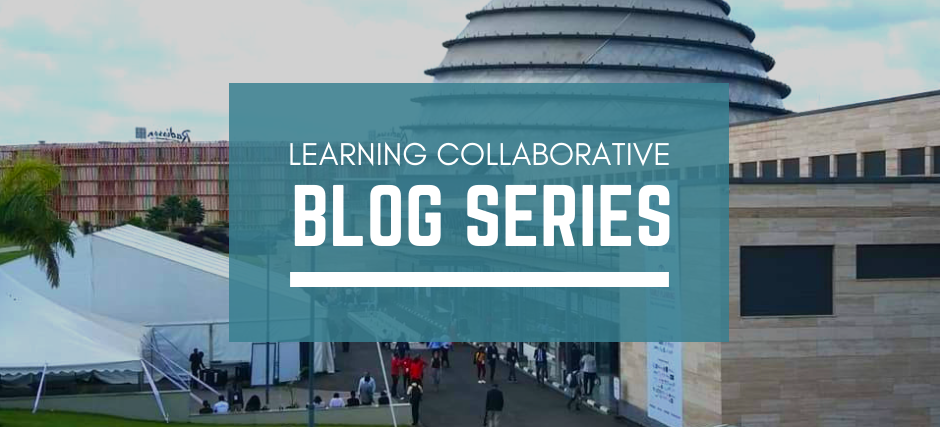Social Norms at the 2018 International Conference on Family Planning

The Learning Collaborative to Advance Normative Change is a network of experts committed to facilitating collaboration between organizations and individuals working on adolescent and youth norms-shifting interventions. Members are working collectively to build knowledge and tools to promote and guide effective social norm theory, measurement, and practice. To this end, we have developed a series of blogs to clarify some of the key concepts in social norms work.
Our first blog shared the basics of social norms—what they are and why they’re important. Our second blog explored issues related to the design of norms-shifting interventions, and specifically, why understanding norms at program design is critical in scaling up. In our fourth blog in the series, we shift pace and share reflections on Learning Collaborative events, insights from other norms-focused sessions, and the general buzz around social norms at the 2018 International Conference on Family Planning (ICFP) held in Kigali, Rwanda from November 12-15, 2018.
Overall, socio- normative influences on family planning was a highly present theme. This was apparent conference-wide—with a track focused on demand generation and social and behavior change—and within side events, posters, individual presentations, and pre-formed panels. As we engaged with participants at our own events and attended the events of colleagues at ICFP 2018, it became evident that both the interest in social norms and the number of programs seeking to shift-norms has increased since the last ICFP in 2016, with nearly 50% more abstracts accepted focusing on social norms issues and programs. This awareness and interest is exciting for the Learning Collaborative—bringing new opportunities to engage with more folks, learn from one another, and share our resources with others.
To kick off the week on Sunday, November 11th, the Institute for Reproductive Health held a pre-launch event to share the upcoming Journal of Adolescent Health Special Supplement featuring work from Learning Collaborative members on theory, measurement, and scale up of norms-shifting interventions. Authors from supplement commentaries and manuscripts discussed key themes, efforts, and findings. Scale-up practitioners from Girl Effect-Rwanda and CARE-Ethiopia also spoke of their organizational experiences with norms shifting strategies and the implications of the learnings from the Journal for their own programs. Stay tuned for the Supplement, to be posted online in early 2019!
In addition to the Journal Launch, Learning Collaborative members and others engaged in influencing social norms to reduce barriers to family planning uptake presented at a number of events:
- One of the Implementing Best Practices (IBP) sessions was dedicated to building understanding of concepts and practical applications. Learning Collaborative members facilitated the session “Norm, attitude, or belief? Making norms shifting more normative within sexual and reproductive health programs.” The session took participants through a process of defining concepts – how norms operate – as well giving guidance on being more explicit in intervention design – key principles and characteristics of norms-shifting intervention – when aiming to integrate a normative focus in interventions to improve sexual and reproductive health behaviors and outcomes.
- A number of Learning Collaborative member organizations shared results from norms-shifting programs: the Passages Project Transforming Masculinities and Growing up GREAT! interventions shared social norms measures and implementation results; Institute for Reproductive Health’s Tékponon Jikuagou intervention presented on the overall effectiveness of the social network intervention and how men’s norms and networks influence family planning uptake.
- Other Learning Collaborative member organizations shared new thinking in the area of social norms: Breakthrough ACTION and Breakthrough RESEARCH explored norms related to provider behavior change; Promundo presenting their new Getting to Equal call-to-action brief, unpacking the impact of masculine norms on achieving gender equality; and Save the Children, shared a new framework on programs for first-time parents and the role norms play during pivotal life stages, among others.
What’s next? The Learning Collaborative is looking forward to more exchanges and sharing of member experiences, research and evidence, and guidance materials at the upcoming Francophone Africa SBCC Summit and the African Evaluation Association Conference in Cote D’Ivoire in February and March, 2019, respectively.
To learn more, stay tuned for our next blog, That’s Great, but What does it Cost? and explore selected presentations by LC Members:
- Catalyzing family planning and cross-sectoral outcomes through integrated social norms interventions | View Poster
- Shouldn’t I get a say? – Intentionally involving youth in AYSRH implementation & evaluation | View Poster
- The who and when of social norms: An empirical assessment of reference groups, life stage and age and in Kinshasa, DRC | View Poster
- The Influence of Men’s Social Networks and Social Norms on Family Planning in Benin | View Presentation
- Getting to Intent : Do social norms influence men and women’s modern contraceptive use in the DRC | View Flash Presentation, View Poster
- Approche de réseau social de Tékponon Jikouagou (TJ) : Enfin une solution aux Besoins non satisfaits en Planification familiale liés aux barrières socioculturelles! | View Poster
Courtney McLarnon-Silk is a Program Officer at Georgetown University’s Institute for Reproductive Health. She works on both the Passages Project and the Learning Collaborative, exploring how social norms have an influence on behavioral outcomes. She is particularly interested in how social norms are formally defined, identified and diagnosed for programmatic integration and for the Learning Collaborative, she provides technical assistance to many projects and organizations seeking to answer those questions by applying the Social Norms Exploration Guide & Toolkit or the “SNET.”
If you are not yet part of the Collaborative, please contact Cait Davin (cait.davin@georgetown.edu) if you would like to join.
 Where We Work
Where We Work  Press Room
Press Room  FACT Project
FACT Project  Passages Project
Passages Project  Learning Collaborative
Learning Collaborative  Search All Resources
Search All Resources  Social Norms
Social Norms  Fertility Awareness Methods
Fertility Awareness Methods